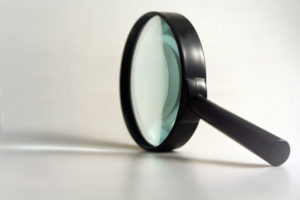This is a great podcast to get your feet wet with indie publishing. There is a transcript if podcasts are not your thing.
5 Important Things That Authors Need To Know About Self-Publishing With Mark Dawson
 If you’re just getting started in self-publishing, there are some things that you need to know upfront in order to save yourself time, money and heartache along the way.
If you’re just getting started in self-publishing, there are some things that you need to know upfront in order to save yourself time, money and heartache along the way.
In this interview, I discuss the basics with Mark Dawson from Self-Publishing Formula.
In the intro, I discuss the first album produced entirely by AI as reported by Digital Trends. The article goes into how the artist, Taryn Southern, uses AI as a creative tool and also starts to question whether AIs can be trained with copyrighted material. The beginning of a new form of copyright discussion, for sure.
I talk about why it’s so important to capture ideas in the moment, because time moves on and things change, based on the map shop around the corner from me closing recently. Walking past that shop almost every day inspired Map of Shadows, so it’s sad to see it go. [You can see a picture of it here Instagram.com/jfpennauthor]
Read the full post on The Creative Penn!

 Affiliate programs and referrals are an increasingly common way of monetizing your content. A company may ask you to recommend them on your podcast or website using a special link that identifies you. In return, you will receive a percentage of the sales that result from the referral.
Affiliate programs and referrals are an increasingly common way of monetizing your content. A company may ask you to recommend them on your podcast or website using a special link that identifies you. In return, you will receive a percentage of the sales that result from the referral. At some point or other, any indie author must wonder how they really feel about Amazon.
At some point or other, any indie author must wonder how they really feel about Amazon.
 Consider these stats: Video racks up over 22 billion daily views. It increases the organic reach of social media content by over 100%, compared to photos or text. It ranks toward the top of the first page in Google searches, is popular across demographics, and builds an instant emotional connection with your audience.
Consider these stats: Video racks up over 22 billion daily views. It increases the organic reach of social media content by over 100%, compared to photos or text. It ranks toward the top of the first page in Google searches, is popular across demographics, and builds an instant emotional connection with your audience.

 This is a guest post by Jessica Ruscello, a copywriter at
This is a guest post by Jessica Ruscello, a copywriter at 
 Julie here! Today, I have Falguni Kothari as my guest on the blog. Falguni is a successful “hybrid author,” with both traditional and self-publishing experience. Her new book, MY LAST LOVE STORY (Harlequin/Graydon House), comes out tomorrow, January 23, 2018. This is Part One of a two part post, so be sure to come back tomorrow for Part Two. Take it away, Falguni!
Julie here! Today, I have Falguni Kothari as my guest on the blog. Falguni is a successful “hybrid author,” with both traditional and self-publishing experience. Her new book, MY LAST LOVE STORY (Harlequin/Graydon House), comes out tomorrow, January 23, 2018. This is Part One of a two part post, so be sure to come back tomorrow for Part Two. Take it away, Falguni! Earlier this year I came across an article by Kim Liao in which she explained
Earlier this year I came across an article by Kim Liao in which she explained  Just because you wrote a new book doesn’t mean that your book is guaranteed to sell. Even if it’s the next Great American Novel, it won’t be a success if it doesn’t get into the collective conscious of the public. This is why your book needs good marketing tactics to back it up.
Just because you wrote a new book doesn’t mean that your book is guaranteed to sell. Even if it’s the next Great American Novel, it won’t be a success if it doesn’t get into the collective conscious of the public. This is why your book needs good marketing tactics to back it up. You’re
You’re  by Tabitha Lord
by Tabitha Lord Kindle Scout is Amazon’s innovative program where readers “scout” for new books and vote for ones they believe should be published. Back in April, I covered the basics of
Kindle Scout is Amazon’s innovative program where readers “scout” for new books and vote for ones they believe should be published. Back in April, I covered the basics of  The latest guidebook for indie authors in ALLi’s Successful Self-publishing Series has been written to answer one of the most frequent questions posed by self-published writers: “How do I get my book stocked in a bookstore?” – and the frequent supplementary query: “Is it even worth trying?”
The latest guidebook for indie authors in ALLi’s Successful Self-publishing Series has been written to answer one of the most frequent questions posed by self-published writers: “How do I get my book stocked in a bookstore?” – and the frequent supplementary query: “Is it even worth trying?”